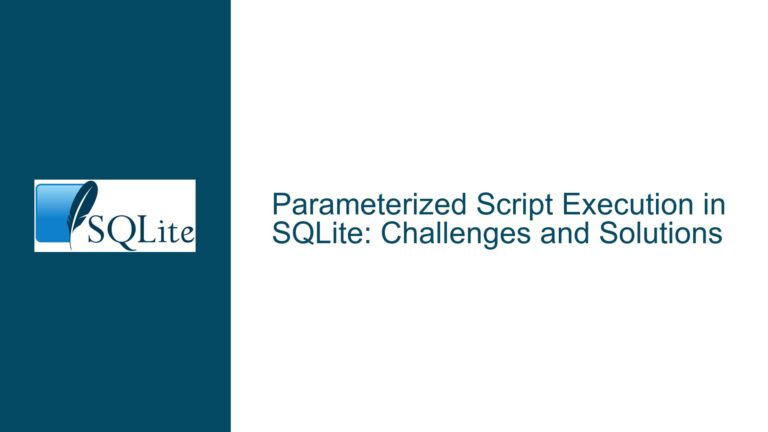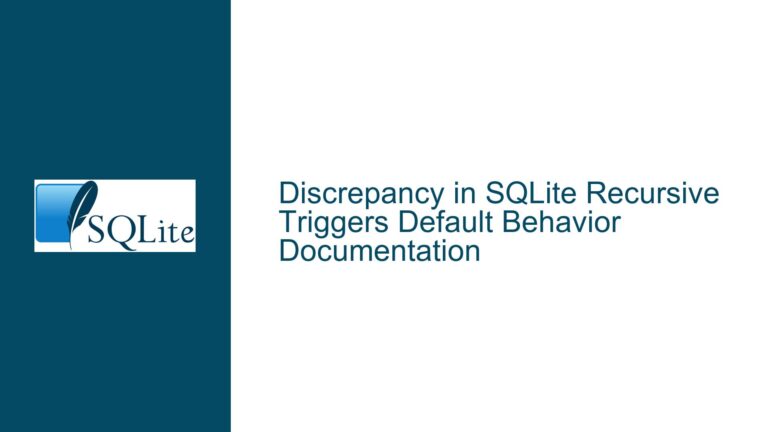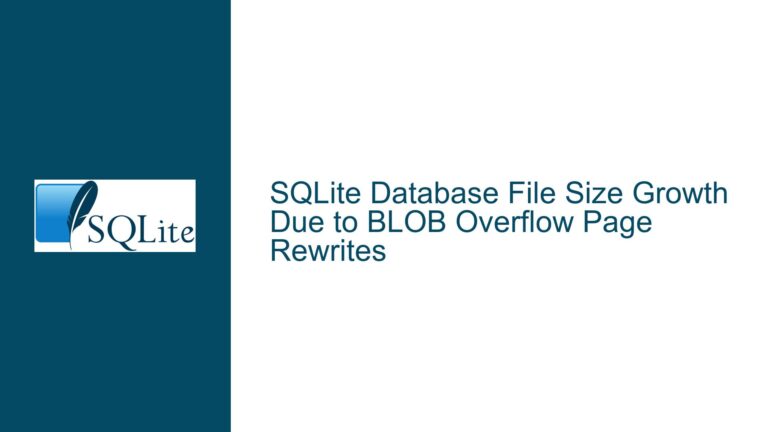SQLite max_page_count Not Enforcing Size Limit on Attached Databases
SQLite Database Size Limitation with max_page_count When working with SQLite, one of the key features that developers often leverage is the ability to limit the size of a database file using the max_page_count pragma. This pragma allows you to set a maximum number of pages that the database can contain, effectively capping the size of…








